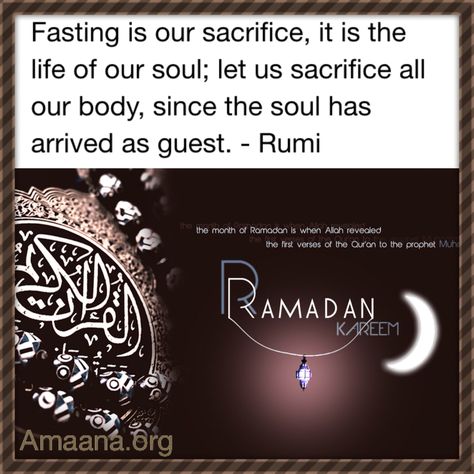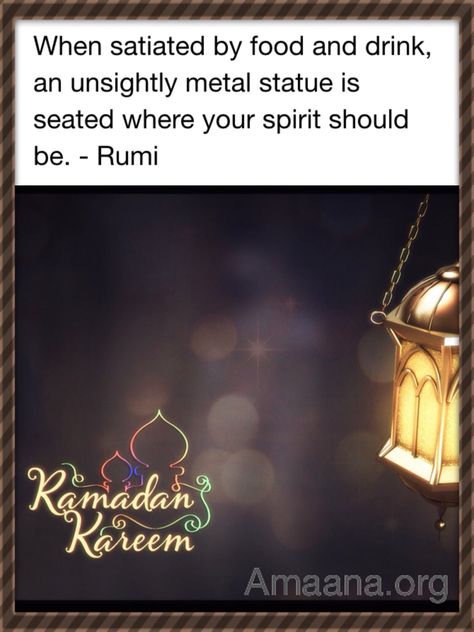
A billion people are observing the month of Ramadan with extra prayers, mindfulness, meditation, fasting, concern for the welfare of others, doing charity and other acts of kindness to serve the creation of God and our connection to Him, as we are all aspects of the Divine! So we are actively bringing Heaven on Earth! Subhaan’Allah — Glory be to God.
The holy month of Ramadan begins on the first day of Ramadan which is the ninth month of the Islamic lunar calendar. This year, 2024, it starts on the evening of March 10th after the New Moon, Chandraat. Ramadan is when we also fast from from dishonesty, stealing, unethical actions, and other activities that would lead one astray. The energies pouring in from the Central Sun and as ordained by our Creator, we are now experiencing Heaven on Earth as we recognize our Divine Spark activated so we can ascend! Read more on my Nawruz page.
After the moon’s lunar cycle of 30 days or so, the end of the fasting month is celebrated by Eid where the devout celebrate after having completed the month of fasting successfully from dawn to sunset each day. The end of this month starts with the morning prayers on Eid-ul Fitr where greetings are exchanged with everyone, children are given an Eidi, a gift of money followed great rejoicing and feasting and picnics.

 The great Muslim poet Jalal al-Din Muhammad Rumi’s Ramadan poems 13th century AD:
The great Muslim poet Jalal al-Din Muhammad Rumi’s Ramadan poems 13th century AD:
“O moon-faced Beloved,
the month of Ramadan has arrived.
Cover the table
and open the path of praise.”
“There’s hidden sweetness in the stomach’s emptiness.
We are lutes, no more, no less.
If the sound boxes stuffed full of anything, no music.
If the brain and belly are burning clean with fasting,
every moment a new song comes out of the fire.
The fog clears, and new energy makes you run
up the steps in front of you.
Be emptier and cry like reed instruments cry.
Emptier, write secrets with the reed pen.
When you’re full of food and drink,
Satan sits where your spirit should,
an ugly metal statue in place of the Kaaba.
When you fast, good habits gather
like friends who want to help.
Fasting is Solomon’s ring.
Don’t give into some illusion and lose your power,
but even if you have, if you’ve lost all will and control,
they come back when you fast,
like soldiers appearing out of the ground,
pennants flying above them.
A table descends to your tents, Jesus’ table.
Expect to see it, when you fast,
this table spread with other food,
better than the broth of cabbages.”
Ramadan is the ninth month of the Muslim lunar year. It has double significance as this is the month that the Holy Quran was revealed to Prophet Muhammad and that night has been called the Night of Power – Layla-tul Qadr, the night where a single moment of enlightenment of the Noor of Allah converts the night into a period of Spiritual glory and majesty that touches eternity. Pious Muslims strive to make themselves pure, especially during this month, by ritual and spiritual observances to make ready for Companionship on High. This month has been declared sacred in the Holy Quran wherein God says:
2:183 – O you who believe, fasting is prescribed on you as it was prescribed to those before you so that you may become self-restrained.
2:185 – The prescribed fasting is for a fixed number of days, but whoso among you is sick or on a journey, shall fast the same number of other days; and for those who are able to fast only with great difficulty, is an expiation – the feeding of a poor man. And whoso does good of his own accord it is better for him. And fasting is good for you, if you only knew.
For the last 1400 years, over one billion Muslims throughout the world, the faithful, pay special attention to the esoteric (batin) matters by practicing the exoteric (zaher) fasting by refraining from dishonesty, stealing, unethical actions, and other activities that would lead one astray. A Momin’s (believer’s) life is a journey to become one with the Essence and her daily life is a mirror of her spiritual beauty. A Muslim lives a daily life of piety which includes practice of faith and taking care of life, Din and Duniya, that means, working for the family, earning and taking part in society whilst also maintaining a relationship with the Creator-on-high. So the tasbi (rosary) will be in constant use to remember God and recall this link with the Spirit and Soul.
During Ramadan, Muslims fast from sun-up to sun-down daily for 30 days, not having anything to eat, drink, smoke and keeping away from sexual relations during that period. A special feast is prepared for the breaking of the fast each evening, iftar, where everyone present is invited to partake of the dinner after the all-day fast where prayers of thanks are offered and family and friends reconnect and rejoice for remembering their duty to God and for striving to be pious.
The month ends with special festivities on the Eid al-Fitr (Day of Feasting) celebration when families and friends truly rejoice for having completed the commandment of Allah by successful abstinence and by Dhikr (Arabic), Zikr (Urdu), (remembrance of Allah) at all times.
At the end of the 30 day fast, Chandraat, the new moon, is celebrated that evening and the next morning on the 1st day of the new month Shawwal that follows Ramadan is Eid al Fitr which begins with morning congregational prayers and afterwards great rejoicing by greeting each other and thanking God for having completed the extra pious duties successfully and children are rewarded with Eidi, a small gift of money or sweets and many gift exchanges take place followed by a feast.
The extra prayerful month leaves a mark on the faithful as the believer is forever transformed for his/her close communication with God by these material and spiritual practices. One continues this practice all year and reaps the benefits by remaining ever vigilant to her duty to her Lord from Whom we have come and to Him is our return. Inna Lillahi wa inna Ellaiyhi Raajioon!
Here is 48th Imam Mowlana Sultan Mahomed Shah Aga Khan III’s view on fasting:
“The healthy human body is the temple in which the flame of the Holy Spirit burns, and thus it deserves the respect of scrupulous cleanliness and personal hygiene. Prayer is a daily necessity, a direct communication of the spark with the Universal flame. Reasonable fasting for a month in every year, provided a man’s health is not impaired thereby, is an essential part of the body’s discipline -through which the body learns to renounce all impure desires. Adultery, alcoholism, slander and thinking evil of one’s neighbour are specifically and severely condemned. All men, rich and poor, must aid one another materially and personally. The rules vary in detail, but they all maintain the principle of universal mutual aid in the Muslim fraternity. This fraternity is absolute, and it comprises men of all colours and all races: black, white, yellow, tawny; all are the sons of Adam in the flesh and all carry in them spark of the Divine Light. Everyone should strive his best to see that this spark be not extinguished but rather developed to that full “Companionship-on-High” which was the vision expressed in the last words of the Prophet on his deathbed, the vision of that blessed state which he saw clearly awaiting him. In Islam the Faithful believe in Divine justice and are convinced that the solution of the great problem of predestination and free will is to be found in the compromise that God knows what man is going to do, but that man is free to do it or not.”
Full text at: Memoirs – Religion of my Ancestors
And here, Mowlana Hazar Imam, Aga Khan, discusses fasting in the interview with Nicolas Tomalin:
NT: You’ve told me the ways in which your faith makes it easier to come to terms with the modern world. Are there any ways in which it is more difficult?
AK: Islam is a way of life, much more than Christianity. That’s is an old, boring thing to say, but it’s true. Now if we are to modernise our society we have to come into contact with totally different traditions. Basically the Ismaili Muslims have a choice between the Communist East, which would prevent us teaching our children the Faith, and the West, which has a set of materialistic and religious standards which are often at variance with ours. Imagine our difficulties seeing a civilisation which is at least twenty years ahead of us in roads, hospitals, and standards of living, but which if we imitate too closely will obliterate the reality of our Faith. Sometimes we are faced with the choice of either accepting habits and customs which have proved economically successful in the West, but go against what our Faith tells us to do, or continuing in our old ways, thus jeopardising our economic development.
I will give you a simple example. One of our factories making jute, for instance, in East Pakistan. In a Western society a factory like that is working 24 hours a day, six days a week all year round. But in an Islamic society that factory can work 24 hours a day, yes, but with five breaks for prayers and a complete break in the month of Ramadan, when the working force is reduced to less than half by fasting.
This is a terrible practical problem. Even among Muslim States they do not agree whether or not to work full time during Ramadan.
NT: How would you advise your communities?
AK: I think if it was, say, a steel factory in a time of national emergency, of war or something like that, then I would advise them to work during Ramadan. If it were peace, and the production were not so vital, then I would advise them to observe Ramadan.
But the real question is, where does one stop? If we are always importing from the West techniques to develop our economics, how can we stop importing alien ideas? You can imagine the problem. Every time we send our young men to Western Universities seven out of ten of them come back with alien traditions and tendencies of which they may be unconscious.
NT: You were a young man who went to a Western university. Did this happen to you?
AK: Yes perhaps. But I think I understand the difficulties and hope to have overcome some of them.
Read full interview at Nanowisdoms
Related Articles
- Ramadan Kareem Mubarak!
- Ramadan Poems by Rumi
- Ramadan and Eid ul Fitr | Ismaili Web Amaana
- Layla tul Qadr – The Night of Power
- Layla tul Qadr – The Night of Power and Destiny
- Ramadan Kareem and Eid ul-Fitr – Eid Mubarak!
- Nowruz Persian New Year – Eid Mubarak!
- Miraj wa Isra – Ascension and Night Journey of Prophet Muhammad
- Eid ul-Fitr Ramadan Kareem – Eid Mubarak!
- Eid-e Ghadir – Declaration at Gadhir e Khumm
- Eid ul Adha – Abraham and Ishmael Festival of Offering
- Nowruz Persian New Year Navroz Mubarak!
- Ramadan Page from previous years
- Calendar Converter
- Ramadan Page from previous years
- Muslim Holidays
- Salwaat Music non-stop for Ramadan
- Abraham and Ishmael – Eid ul Adha – Festival of Offering
- Companionship-on-High
- Islamic lunar calendar
- Prophet Muhammad